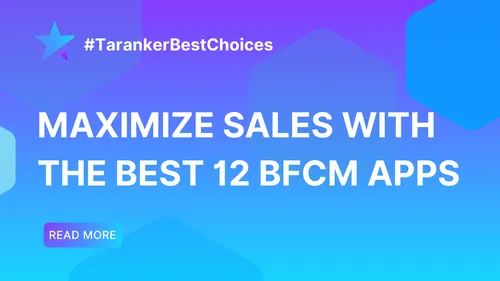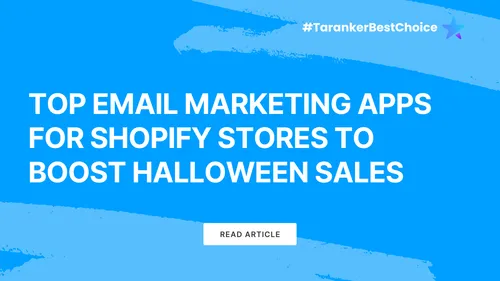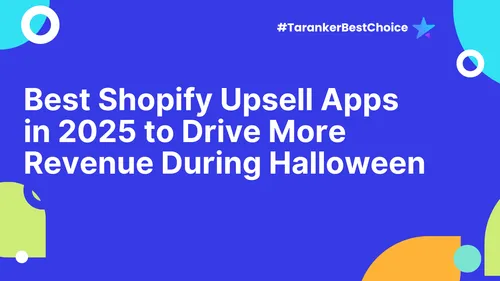Dropshipping continues to grow in popularity among Shopify merchants due to its low-risk and low-investment model. However, the landscape is evolving rapidly. In 2025, competition is fiercer, and customer expectations are higher than ever. To succeed, staying updated with the latest dropshipping tips for Shopify and best practices is crucial.
One of the biggest changes shaping the industry is the emergence of new dropshipping models, including Collective Dropshipping and Collaborative Commerce. These innovative approaches empower merchants to work together, share inventory, and sell each other’s products, paving the way for smarter growth and greater profitability.
Understanding and leveraging these strategies will help you stay ahead in the dynamic world of e-commerce. Here are the top 5 dropshipping tips for Shopify merchants to thrive in 2025.

Tip 1: Choose Profitable and Trending Niches
Choosing the right niche is one of the most critical decisions for any dropshipping business. In 2025, niche selection goes beyond picking popular products. It’s about identifying profitable and trending niches that resonate with your target audience while minimizing competition. Mastering this aspect is one of the most valuable dropshipping tips for Shopify merchants aiming for sustainable growth.
Understanding the importance of niche selection is key to building a successful brand. The right niche can help you stand out, attract loyal customers, and avoid price wars with competitors. To find profitable niches, start by researching and identifying emerging trends. Utilize tools like Google Trends, social media platforms, and industry reports to stay ahead of the curve.
Leveraging Collective Dropshipping is an excellent strategy for testing new niches before fully committing. By collaborating with other merchants, you can share inventory and gauge demand without high upfront costs. This approach minimizes risk and allows you to experiment with different product categories to find the most profitable ones.

Tip 2: Partner with Reliable Local Suppliers
In 2025, partnering with reliable local suppliers is crucial for fast shipping and customer satisfaction. Working with trustworthy suppliers ensures high-quality products and on-time delivery, boosting brand reputation and encouraging repeat purchases.
Using verified dropshipping platforms like Syncee helps Shopify merchants find reputable local suppliers in regions like the US, UK, EU, CA, and Australia. Sourcing locally reduces shipping times, costs, and language barriers, while also simplifying returns and supporting local communities.
Additionally, local suppliers help merchants avoid international tariffs and shipping delays, enhancing the overall customer experience. By leveraging Syncee's network of reliable suppliers, you can strengthen your brand, lower costs, and stay competitive in 202t
Considering new US tariffs regulations is vital for Shopify merchants who sell internationally. Partnering with local suppliers helps you avoid unexpected tariffs, shipping delays, and additional costs. It also enables you to offer faster shipping times, leading to improved customer satisfaction.
By partnering with reliable local suppliers through Syncee, you can enhance your brand reputation, reduce costs, and provide a better customer experience. This strategic approach is essential for staying competitive and successful in 2025.

Tip 3: Optimize Your Product Listings for Better Conversions
Effective product listings are the cornerstone of a successful Shopify store. The goal is to create compelling product pages that attract, engage, and convert visitors into loyal customers. All this with dropshipping tips for Shopify merchants.
High-quality product descriptions and images are fundamental for building trust and encouraging purchases. Use high-resolution images and videos that showcase your product’s features and benefits. Providing multiple angles, lifestyle shots, and videos help customers visualize the product’s value, increasing their confidence in buying.
Using AI tools for dynamic product descriptions allows you to create personalized, SEO-friendly content that resonates with your audience. AI-powered tools can analyze customer behavior and preferences, enabling you to tailor product descriptions to different segments.
Implementing SEO best practices ensures higher visibility on Shopify and search engines. Incorporate relevant keywords naturally into your product titles, descriptions, and meta tags. This strategy helps you attract organic traffic and increase your store’s discoverability.
By optimizing your product listings, you can enhance the customer experience, improve conversion rates, and ultimately grow your Shopify store in 2025.
Tip 4: Sell Unique and High-Quality Products
A key dropshipping tip for Shopify store owners is to focus on distinctive, premium products, you can build a strong brand identity and encourage repeat purchases. Offering exclusive items increases customer engagement and loyalty by creating a sense of exclusivity.
Collaborative commerce is a powerful way to source unique products by partnering with other Shopify merchants. This approach expands your reach without increasing inventory costs and builds strategic relationships that ensure consistent quality and supply.
Starting with dropshipping allows you to test product demand before committing to bulk orders. If a product sells well, switching to wholesale provides better profit margins and brand consistency. Syncee’s wholesale network makes bulk purchasing easier, helping you sell products from different suppliers from one warehouse, personalize the packages and maximize profits. By combining collaborative commerce with the wholesale model, you can diversify your product range and grow your brand sustainably.
Tip 5: Market Your Store Effectively
The last one from our dropshipping tips for Shopify stores rely on effective marketing, and in 2025, data-driven strategies are more important than ever. Using data analytics, you can create highly targeted ad campaigns that reach the right customers at the right time, increasing engagement and optimizing your marketing budget.
Influencer marketing and social proof are valuable tools for building credibility and trust. Collaborating with influencers expands your brand’s reach, while user-generated content, like reviews, enhances social proof and encourages conversions. Email marketing remains effective when tailored to customer preferences through segmentation, allowing for personalized promotions and product recommendations.

Analyzing customer behavior helps you understand purchasing patterns and preferences, enabling you to craft personalized marketing strategies that resonate with your audience. Retargeting ads and customized product recommendations increase the chances of conversion and build long-term customer loyalty.
By using data-driven marketing strategies, you can optimize customer engagement, increase conversions, and drive sustainable growth for your Shopify store in the competitive dropshipping landscape.
Conclusion
The dropshipping industry is changing quickly, and staying competitive demands forward-thinking strategies and careful planning. In 2025, mastering the right dropshipping tips for Shopify is indispensable for success. This includes choosing profitable and trending niches, partnering with reliable local suppliers, optimizing product listings, selling unique and high-quality products, and marketing your store effectively using data-driven strategies.
By leveraging Collective Dropshipping, Collaborative Commerce, and the wholesale advantage, Shopify merchants can diversify their product range, maximize profitability, and scale smarter and faster. Implementing these dropshipping tips for Shopify will help you stay ahead of the competition and achieve sustainable growth in the evolving e-commerce landscape.







